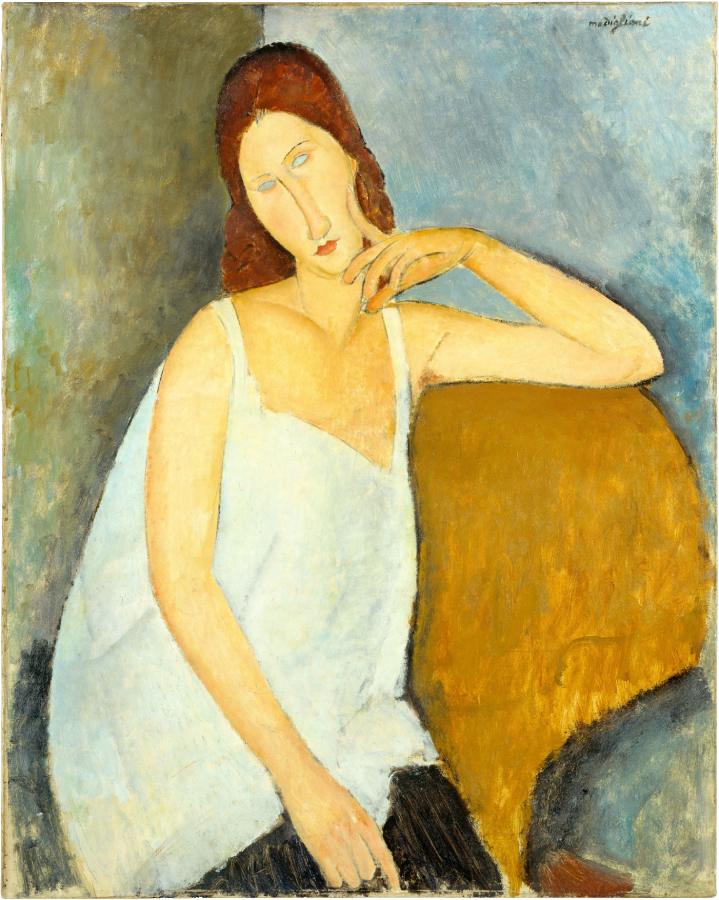Modigliani, Amedeo (1884-1920)
Jeanne Hébuterne
1919
Oil on canvas, 91.4 x 73 cm
Metropolitan Museum of Art, New York
Little known outside of Paris during his lifetime, Modigliani is now recognized as one of the greatest figurative painters of the early twentieth century. His distinctive nudes and portraits of friends from the vibrant artistic community of Montmartre display his characteristic use of bold contours, long oval faces, and elongated bodies.
Born in Italy to Jewish parents, Modigliani moved to Paris in 1906, where he joined the vibrant artistic community of Montmartre. There, he met artists Pablo Picasso and Constantin Brancusi, who were pushing forward new modernist forms of art-making and appropriating the formal qualities of African art then circulating in Paris. The reductive nature of Modigliani’s compositions owes to both of these influences and to the artist’s admiration for classical Italian Renaissance painting, which he learned about as an art student in Florence and Venice.
Jeanne Hébuterne (1898–1920) was a young aspiring artist when she met Modigliani in March 1917. They fell in love and moved to the Côte d’Azur, where Jeanne gave birth to their daughter. After returning to Paris in May 1919, Modigliani’s health deteriorated, the result of alcohol and drug abuse, poverty, and childhood afflictions. The artist died on January 24, 1920; Jeanne, pregnant with their second child, died by suicide two days later.
During their tragically short partnership, Modigliani depicted Hébuterne more than twenty times, typically emphasizing her thick auburn hair and blue eyes. These sensitive portraits are among the artist’s best known works. Here, he presents her in a white chemise, gracefully seated in a large chair. Her left hand touches her cheek in a pensive expression, as her head gently tilts to the right. The asymmetrical composition and sitter’s elongated form evidence Modigliani’s citation of sixteenth-century Italian Mannerist painting, which incorporates these qualities to achieve an exaggerated elegance. (MET)
See also:
• Hébuterne, Jeanne (1898-1920)
